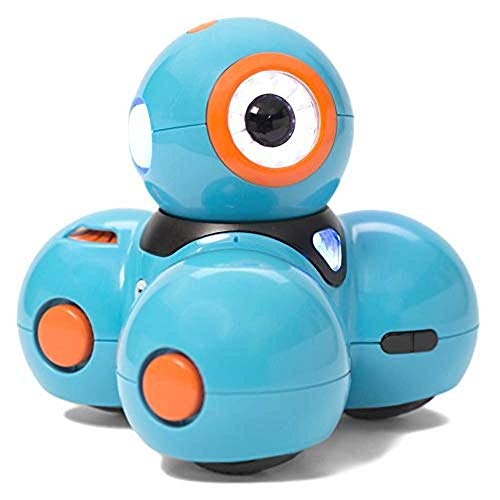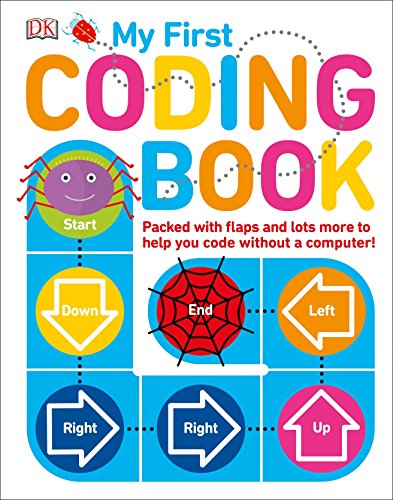Benefits of Coding Beyond the Computer
For information about Coder Kids classes and camps, including online coding and gaming topics, visit register.coderkids.com/onlineclasses.
In a recent blog article, I listed 10 Benefits of Coding. In this post, I’ll be going through each of those benefits, and how they are valuable to us while we’re coding, but also how these skills are useful to us beyond the computer.
1. You Learn Logical Thinking.
Learning to code helps you think logically about how to get from point A to point B, and how to break that down into small, logical steps. Developing the skill of breaking down a vision, problem, goal, assignment, etc. into small, logical steps is a skill that is applicable in pretty much every area of life. Have a new project you’re in charge of at work? Logical thinking can help you figure out how to tackle it, and then prioritize the steps to get the desired outcome. The same is true with a semester long school project, a personal goal, running a 5K , a marathon, fixing up a house, etc.
2. You learn to think critically and to problem solve.
Coding helps you look for details that may be causing an issue and then drives you to find a solution that fixes these issues. Talk about a skill you’ll need for your entire life! When you have the ability to take a step back, look at a problem critically and then think of possible solutions and analyze your options, you’re already ahead of the game. Because we encounter issues in all areas of our lives: personal, professional, financial, spiritual, social, etc., this is a skill that is worth developing!
3. You learn about trial and error and risk taking.
Coding teaches you that it’s OK if your idea doesn’t work. It’s OK if you have to try different ideas many, many times. Trial and error are just a part of the process. Sometimes it’s scary to take a risk. You don’t want to mess up, or feel like you failed. But in order to actually succeed, you do have to try. And you usually have to try more than once. Not being afraid to make mistakes and takes risks allows you to reach your goals (and probably surpass them!), not just debug your code. Talk about a great skill for entrepreneurs, artists, chefs, scientists, etc.!
4. You learn perseverance and persistence.
Coding teaches you to keep trying, there is a solution and you will be able to figure it out. You just have to learn from previous attempts and keep going! Perseverance and persistence are difficult traits to teach, but they are critical life skills. Experiencing the satisfaction of being persistent until you’ve reached your goal is the best way to develop that skill. Living without these traits means that once you encounter a problem or difficulty, in any area of life, you just stop. You give up and stop progressing. I don’t think that’s what any of us want!
5. Coding teaches creativity.
Coding teaches you to be more creative in your thinking and problem solving. Creativity is like a muscle. The more you use it, the stronger it becomes. And artists aren’t the only ones who need to be creative. Teachers, researchers, parents, therapists, lawyers, chefs, contractors, business owners, fundraisers, nurses, (the list goes on forever!) will all benefit from an increase in creativity. Creativity can help us think outside the box for problem solving, think of new ideas to help a business, classroom or hospital thrive and for ways to help those we care about with problems big and small.
6. Coding increases confidence.
Knowing that you can create and program your ideas makes you feel good about yourself and your abilities. Increasing you confidence in coding helps increase your overall confidence. And feeling good about yourself helps you to feel happier, work harder and try new things! After all, even if you’re a coding master, you didn’t start that way. But you worked hard and improved your skill set. And you should feel good about that! You can use that pattern in learning a new language, playing a musical instrument, introducing yourself to others, and improve your confidence in those areas as well.
7. Coding helps you learn about organization and planning.
When you are coding a program, you have to think of what is going to happen in the future of your project and how you’re going to get there. Coding helps you learn to break up your goal into small, organized action items. Planning and organizational skills are applicable in every area of life. Planning ahead and staying organized can help you reach your goals, and it can also help you feel more calm and collected along the way. Knowing what you’re next steps will be, what problems might happen, how you’ll overcome them, and where and when things happen, go a long way when you’re starting a new business, coaching a team, or conducting a science project.
8. Coding improves teamwork.
Often coders work with more than one person to complete a project. When this is happening, you learn to trust others, see their viewpoints and learn from their experience. No matter what you do in your personal or professional life, at some point, you will be interacting and working with others. What better way to do that than with trust, an open mind and a willingness to learn and share!
9. Coding improves communication skills.
When we code, we must break down any items of action on our project into small, simple steps. This is a skill that can be hard to develop, but that is very useful when communicating with others. Simple, clear and small directions are easier for those around us to understand. Let’s say you’re a manager explaining what needs to be done. Small, simple steps will help with that! Even if you’re just playing a board game with your family, teaching others with small, simple steps will make it easier for them to understand, and more likely that they’ll succeed!
10. Coding is FUN.
Creating something unique that works the way you envision is fun! Having fun improves your mood, decreases stress, helps you focus, and makes it easier for others to work with you. Who doesn’t want to have more fun?!
So, what do you think? Do you think the skills you learn from coding apply beyond the computer? Let us know what you think in the comments!
As an Amazon Associate, Coder Kids earns from qualifying purchases.

















